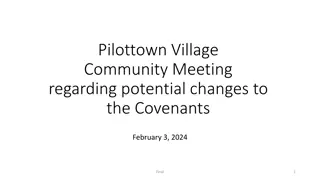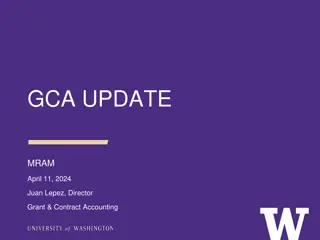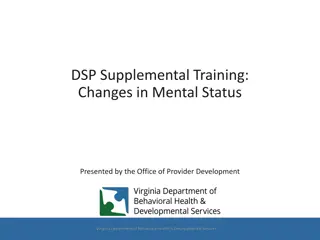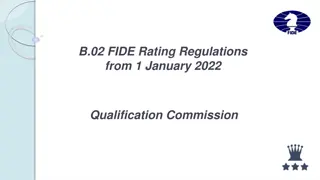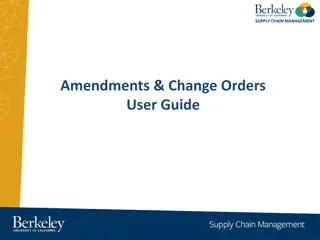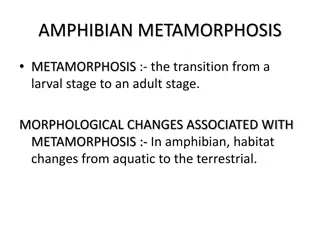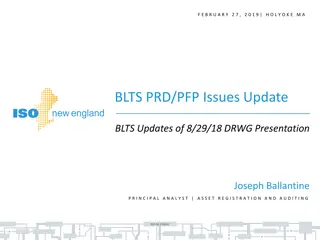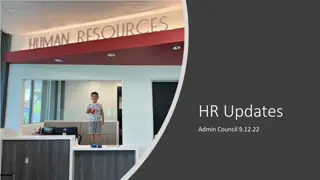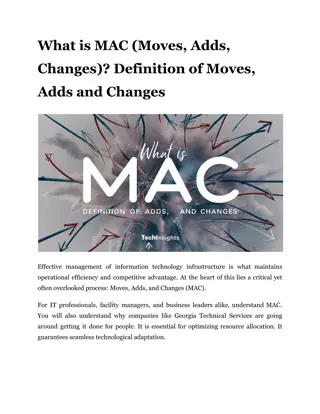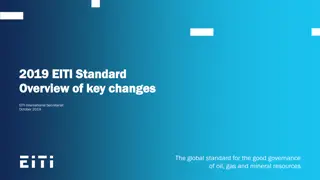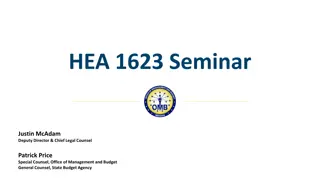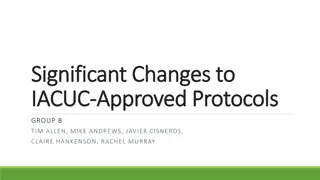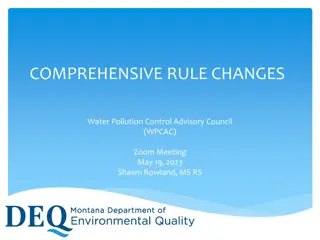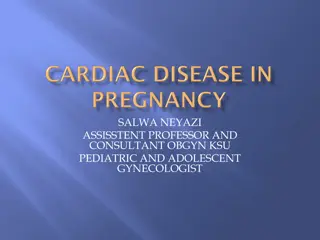
Significant Changes in Title IX Rules on Sexual Harassment - Overview
The U.S. Department of Education released new Title IX rules on sexual harassment in May 2020, marking the first major rulemaking on this issue since 1975. These changes bring about live hearings, cross-examination of witnesses, and other due process requirements to ensure fairness. Learn about the key updates and how they impact postsecondary institutions dealing with sexual misconduct cases.
Download Presentation

Please find below an Image/Link to download the presentation.
The content on the website is provided AS IS for your information and personal use only. It may not be sold, licensed, or shared on other websites without obtaining consent from the author. If you encounter any issues during the download, it is possible that the publisher has removed the file from their server.
You are allowed to download the files provided on this website for personal or commercial use, subject to the condition that they are used lawfully. All files are the property of their respective owners.
The content on the website is provided AS IS for your information and personal use only. It may not be sold, licensed, or shared on other websites without obtaining consent from the author.
E N D
Presentation Transcript
Title IX Changes Josh McKoon General Counsel
Title IX Changes On May 6, 2020, the U.S. Department of Education released Title IX rules on sexual harassment. This represents the first full rulemaking on a major Title IX issue since 1975 and the only one dedicated to sexual harassment. This presentation will briefly cover the most significant changes reflected in the new rules.
Live Hearings and Cross Examination Under the new rules, postsecondary institutions must hold live disciplinary hearings in sexual misconduct cases and allow cross- examination of witnesses. These hearings are quasi-judicial proceedings with certain due process guarantees similar to a criminal trial. Additionally, this process eliminates the single investigator model insofar as no decision-maker be the same person who serves as the Title IX Coordinator or investigator (1247). Decision-makers must not only review the record created by investigators, but also hear live testimony from the witnesses upon whom investigators have relied.
Live Hearings and Cross Examination (Contd) Witnesses relied upon by investigators who refuse to submit to cross-examination by the advisors appointed to represent the complainant and respondent cannot be given any evidentiary weight by the decision-maker. These advisors can be but are not required to be attorneys. Postsecondary institutions must make advisors available when a party is unable to obtain an advisor on their own. Either party may request cross-examination be conducted remotely, and the prior sexual behavior of either party is largely off limits from cross-examination. Respondents are now presumed innocent until proven guilty and the evidentiary standard set must be either preponderance of the evidence or clear and convincing evidence. Whatever standard is chosen must be applied in all sexual harassment cases.
Other Due Process Requirements All sexual harassment rules and training must be gender neutral and free of any sex bias or sex stereotyping. Investigators and decision-makers are prohibited from drawing conclusions about credibility based on a party s status (809). When an investigation begins, the parties must be given a written explanation of the allegations with sufficient details known at the time and with sufficient time to prepare a response before any initial interview. At least ten (10) days before the hearing, both parties must receive a written report that fairly summarizes the relevant evidence. At the conclusion of the hearing, the decision-makers must provide a statement of and rationale for the result as to each allegation. Either party may appeal that decision.
Defining Sexual Harassment Under Title IX First, any form of quid pro quo harassment that is, conditioning any educational opportunity or benefit on the granting of sexual favors constitutes a per se violation of Title IX, regardless of its severity or pervasiveness. Quid pro quo harassment constitutes conduct without any constitutional protection. Second, the final version of the regulations added the proviso that any form of sexual assault, dating violence, domestic violence, or stalking as defined by the Clery Act constitutes sexual harassment. These forms of misconduct are so serious in themselves that no finding of pervasiveness is required. Third, to violate Title IX, all other forms of unwelcome conduct must be so serious, pervasive, and objectively offensive that it effectively denies a person equal access to an educational program.
Title IX Responsibilities of Colleges Now the phrase education program or activity includes locations, events, or circumstances over which the recipient exercised substantial control over both the respondent and the context in which the harassment occurs as well as any building owned or controlled by a student organization that is officially recognized by a postsecondary institution. This narrows the application of Title IX considerably from current practice. Finally, the new rules establish that Title IX jurisdiction only exists within the United States so that a college could not offer Title IX procedures for a study abroad program for example.
Reporting Misconduct and Filing Complaints Colleges bear responsibility for redressing sexual harassment only when they have actual knowledge of such misconduct. Colleges are required to establish a clear, well publicized, and easy to use system to report such misconduct. Mandatory reporters mean that such a person must report all instances of misconduct they have witnessed or heard about to the person responsible for investigating such allegations. The rules do not dictate who must be placed in this category at the postsecondary level. Upon receiving a report about possible misconduct, whether from the alleged victim or anyone else, the Title IX coordinator must contact the person subject to the harassment and immediately offer supportive measures including but not limited to counseling, extensions of deadlines or other course-related adjustments, modifications of work or class schedules, campus escort services, mutual restrictions on contact between the parties, changes in work or housing locations, leaves of absence, [and] increased security and monitoring of certain areas of the campus.
What does this mean for our colleges? Identify and train decision-maker(s) Identify and train advisor(s) Develop materials to help guide the live hearing process Additional training for Title IX Coordinators to migrate to the new rules Revisions to TCSG Policy Manual to take effect no later than August 14, 2020

